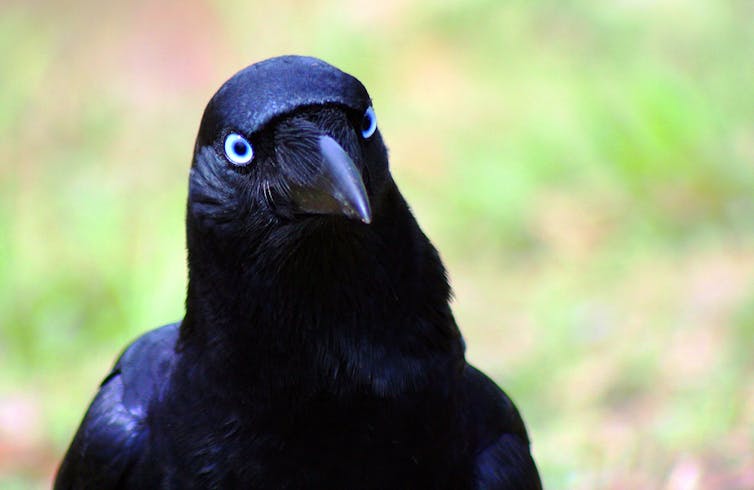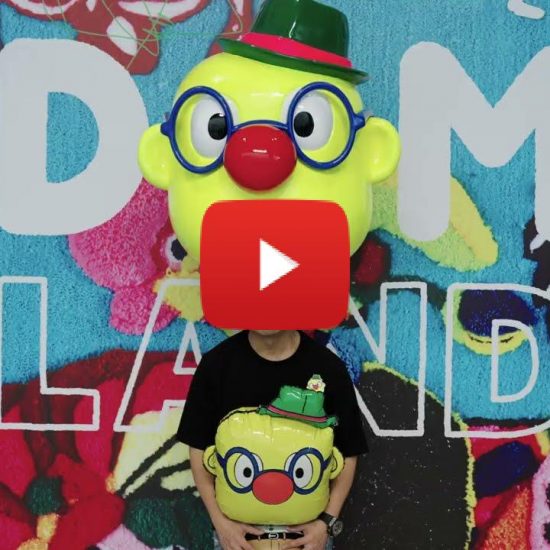
Flickr/monkeyc.net
Sunanda Creagh, The Conversation
Crows can remember human faces associated with stressful situations for up to five years and they’ll also warn their friends, a study has found.
Crows are known for their extraordinary smarts and have been observed making tools to dig food out of tight spots.
Now a five-year study by scientists at the University of Washington has found they possess an unusually good memory for human faces linked to a stressful event.
The researchers donned a caveman mask before trapping, banding and releasing wild crows at five sites on or near their campus in Seattle, Washington.
They then observed how the crows reacted when approached by someone wearing the caveman mask and compared it to the reaction prompted by a control mask – in this case, a mask depicting the face of former U.S. vice president Dick Cheney.
While the Cheney mask drew a muted response, the caveman mask prompted rounds of angry squawking and flapping, not only from the birds previously captured but also from crows that had witnessed the initial trapping.
At one of the five sites, 20% of crows reacted angrily to the caveman face shortly after the trapping. After five years, the proportion of crows reacting to the caveman face was recorded at 60%, suggesting that word had spread among the flock that this was a dangerous face.
“Independent scolding by young crows, whose parents had conditioned them to scold the dangerous mask, demonstrates vertical social learning. Crows that directly experienced trapping later discriminated among dangerous and neutral masks more precisely than did crows that learned through social means,” said the paper, which was published in the British journal Proceedings of the Royal Society B: Biological Sciences.
“People have suspected for a long time that crows are very smart and have very good memories. And they certainly recognise people,” said Dr Stephen Debus, a bird expert and honorary research associate in zoology at the University of New England.
“They hide food and come back and find it later, they can make tools like hooks and spikes to catch food or for digging. They are very adaptable.”
Dr Debus, who was not involved in the study, said birds like crows and cockatoos had highly evolved brain capacity and methods of communicating with each other.
“They have a lot more intelligence than people give them credit for,” he said.
One of the scientists involved in the University of Washington study, John Marzluff, was quoted saying that he was approached in the past by the U.S. military about training crows to find al-Qaeda chief Osama bin Laden, who was killed earlier this year.
“They have a long term memory, very acute discrimination abilities, and if a group of crows knew bin Laden as an enemy, they would certainly indicate his presence when they next saw him,” Professor Marzluff said.![]()
Sunanda Creagh, Editor, The Conversation
This article is republished from The Conversation under a Creative Commons license. Read the original article.





